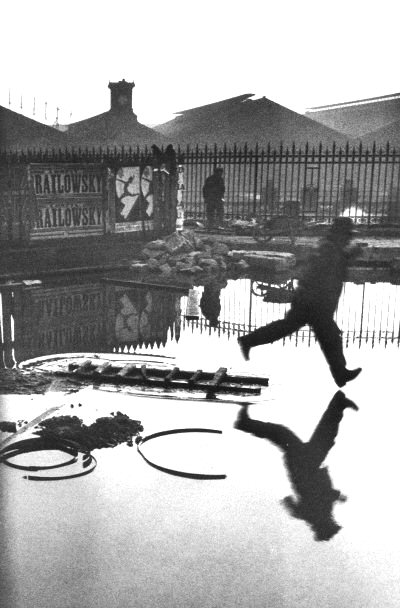Sparrow
Veteran
My apologies, I did not intend to hijack this thread.
Still, I thought I'd share this amusing set of photos:
Which photograph was staged? 😉😀


more to the point which one was cropped … 😱😱😀
My apologies, I did not intend to hijack this thread.
Still, I thought I'd share this amusing set of photos:
Which photograph was staged? 😉😀


My apologies, I did not intend to hijack this thread.
Still, I thought I'd share this amusing set of photos:
Which photograph was staged? 😉😀


Dear Ron,Your correct assertion that manipulation of photographic output has been around for some time is still largely one of semantics, Roger precisely because it is so easy to make a convincing fake today versus yesterday. It is that simplicity and near seamless perfection that will soon destroy any assumption in the minds of viewers about an image's provenance. If that doesn't disturb you, you're either lying to yourself in order to score a rhetorical point or you should take up painting.
I think it has shifted the importance away from the gear and toward the image. I don't hear about many people fondling digital cameras and talking about them as cult objects as I've always heard with film cameras. Folks tend to buy digital cameras to shoot photos.
Hey folks. My post was about how digital photography has changed your own photography. Not so much about issues of whether manipulation is good or not or what's better digital or film. But how has it effected both how you shoot and what you shoot.
For me it has opened up room to experiment. When shooting a model I can shoot as many images as I had with film but I can now review images midshoot and that often given me new ideas or how to readjust the lighting. Seeing the image on a monitor is a better feedback loop for me than the old Polaroid backs provided.
And I have among other digitals a 'superzoom' with a 500mm equivalent lens. With 35mm I never had anything longer than a 200mm. Suddenly this little camera, IS and superzoom opened up another visual space for my photography.
So digital has given me the tools to expand my vision in a number of ways and I am thankful for that.
And I was one of those early naysayers. When digital came out I really hated it. It was slow and clumsy and the early Nikon 2MP cameras made more struggle than film. But the world has changed and so have I.
So back to what I wanted to hear, how has digital changed your photography?
Hawkeye
I should have provided some attribution here:
The first image was by this gentleman: http://www.flickr.com/people/balakov/
The second was (obviously) by Henri Cartier Bresson.
mmm.....seems a bit strange to overcome your digital hatred enough to fork out so much money for a 'M8 back up camera' - when a 'real film' camera would be so much better - and a fraction of the cost! 🙄It's made it damm hard to make a steady paycheck like it was when it was just film and professional people took pictures......now everyone and their Mother thinks they can take good photos and no one wants to pay good money to have anything done professional anymore, people in general have lost their use for professional photoraphy due to having digital cameras at every corner.
I really find it even CHEAPER now to shoot real film and the quality is STILL better than any digital in my book, it's really not easy to make a living shooting as I used to, now I sell rare collectable WW2 era Leica's, there's more money in that than taking pictures.
Needless to say I HATE digital photography, I only have/use my M8 to backup shooting with real film, I'll use and shoot film till the very end......
Tom
mmm.....seems a bit strange to overcome your digital hatred enough to fork out so much money for a 'M8 back up camera' - when a 'real film' camera would be so much better - and a fraction of the cost! 🙄
Damn! - I wish I'd thought to do that.....there are so many around - to be picked up cheaply! 🙄😀it's really not easy to make a living shooting as I used to, now I sell rare collectable WW2 era Leica's, there's more money in that than taking pictures.
